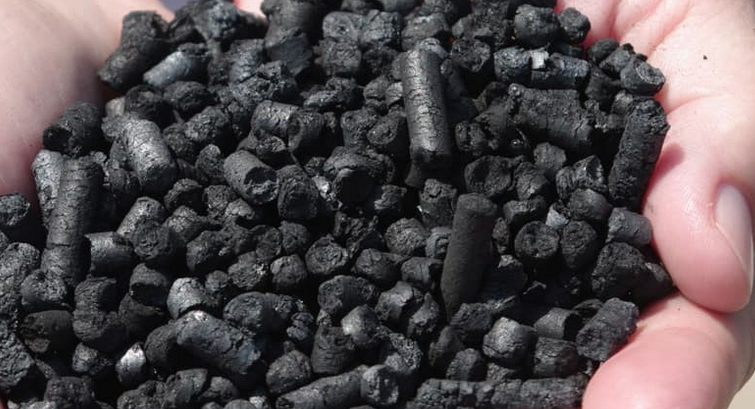Taking it to the heat: Fire to Food project proposed for regional district
A pilot project to utilize biochar technology in a regional context and help the agricultural industry is being put forward by Wildsight.
The Fire to Food project would be a circular economy pilot to produce biochar — a specific type of charcoal that is made by pyrolysis, which is when an organic matter like wood chips is heated in the absence of oxygen — from wood waste for the agricultural industry.
Biochar is made up of organic residues such as plants and wood waste that, when applied to soil, allow nutrient-enhancing microorganisms to help feed the plant, providing nutrients and water. They can also help reduce soil’s nitrous oxide emissions, a potent greenhouse gas.
The Regional District of Central Kootenay has provided a letter of support for the project — operated through Wildsight’s Youth Climate Corps — and in-kind support ($58,000) as it applies to the provincial Rural Economic Diversification and Infrastructure Program (REDIP) for funding.
In late 2022, the regional district collaborated with Wildsight and the City of Nelson to submit a funding proposal to the prior intake of REDIP.
“That application was not funded but provincial staff provided useful and encouraging feedback and offered to support the development of a proposal to the next intake,” noted RDCK sustainability planner Paris Marshall Smith in a report to the regional district board of directors.
The project did move ahead in a limited form. Despite the lack of provincial funds, Wildsight, RDCK, and Nelson were able to deliver a smaller version of the proposed work this past summer through the Community Ambassadors partnership.
Feeding the fire
Fire to Food links wildfire mitigation and agriculture into the growth of a localized circular economy.
The program would recruit, train and employ annual cohorts of local youth (ages 17-30) over two years (2024 and 2025) to operate the project.
In late spring or early fall 2024, a wildfire risk reduction treatment would be planned for the Salmo Ski Hill, with most funding already confirmed from the Salmo Ski Hill Society, the B.C. Mountain Resorts Branch, and Columbia Basin Trust/BC Wildfire Service.
“Instead of simply burning flammable material pulled out of the forest for this project, (it would) convert this material into biochar,” said Marshall Smith.
Working with local agricultural experts, the program would deliver the biochar to regional food producers and train them on how to use it to enhance crop yields and other desirable economic, social, and environmental outcomes, Marshall Smith explained.
In the second year biochar could be sourced from other wildfire mitigation projects if the supply created from the Salmo project was not sufficient to meet demand from agricultural producers.
“Throughout, we will endeavor to build connections between forestry and agricultural operators to sustain this circular economy linkage over the longer term,” said Marshall Smith.
The YCC
YCC exists to connect, inspire, and empower young adults (aged 17-30) to take meaningful action on climate change.
YCC will recruit, train, and employ youth to advance climate-related community priorities while gaining the experience, connections, and confidence they will need to succeed in prosperous careers.
Shovel in the ground
“As climate change increases the need for wildfire mitigation and local food production remains a key regional priority, this project will support growth and development of the agricultural sector while reducing waste and carbon pollution from the forestry sector,” said Marshall Smith.
By using local youth, the project will develop skilled labour available to both these industries while boosting rural youth retention.
“This work will also lend momentum to broader efforts to develop a regional circular economy that produces greater economic output while minimizing input requirements and waste and strengthening rural self-reliance,” Marshall Smith explained.
The project will capture lessons learned and best practices to develop a replicable model that can be further developed within the regional district and shared with other rural regions in B.C.


























Comments